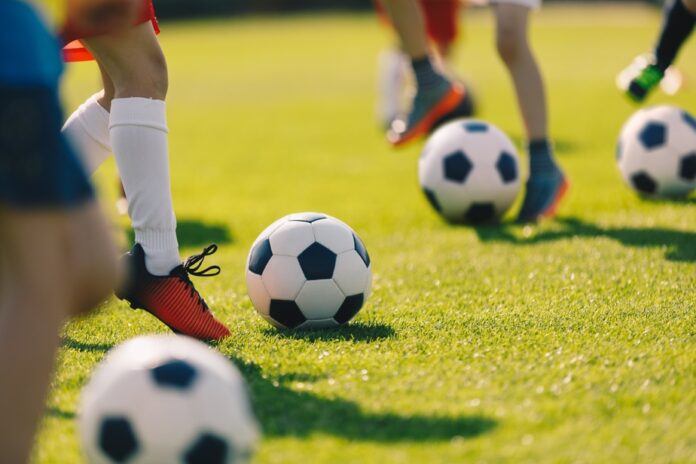A recently published large Quebec study confirms an idea that is increasingly widespread in the scientific literature: team sports are generally much better for the mental health of children than individual sports.
The study authors followed 785 young people aged 6 to 10 for five years. Their “robust” conclusion indicates that children who participate in team sports suffer less from depression, anxiety or social isolation. The same link was not found in those who do individual sports.
“The goal is not to discourage individual sports. They have beneficial effects on many other aspects,” says one of the researchers behind the study and doctoral student in psychology at UQAM, Charles-Étienne White-Gosselin.
“But it can be said that there is a significant link between sustained participation over time in team sports and a decrease in internalized problems that has not been observed in individual sports. »
For years, studies have shown the beneficial link between the practice of sport and mental health. The Quebec researchers wanted to see if the type of sport played matters.
Already, some research had shown that team sports – soccer, hockey, basketball, volleyball, etc. – had a greater beneficial effect on children’s mental health than individual sports – swimming, skiing, tennis, etc.
To achieve their ends, the researchers used two avenues. They first asked parents to report on their child’s participation in team and individual sports each year. They then asked the teachers of these same children to tell them if they suffered from signs of depression, anxiety or social isolation.
“In children ages 6 to 10, teachers are known to be able to reliably measure internalized problems,” notes Charles-Étienne White-Gosselin.
The conclusion of the article published in the journal Social Development is clear. The study1 concludes that “sustained participation in team sport is linked to fewer symptoms of depression, anxiety and social withdrawal, whereas individual sports are not”.
Charles-Étienne White-Gosselin now believes that it will be necessary to try to explain why this difference exists.
“Our first hypothesis is that the feeling of social integration in the peer group, in other words the feeling of belonging to a group, is more present in team sports”, indicates Charles-Étienne White-Gosselin.
Next, the researcher believes that team sports could be more conducive to friendships, because there is generally a spirit of collaboration and mutual aid.
“These two hypotheses remain to be proven,” notes the researcher.
One thing is certain, the conclusions of the study could be useful to public health authorities. During the pandemic, White-Gosselin was working on putting the finishing touches to her article.
“Individual sports were allowed to address mental health issues and I was writing my study,” he said. I was reading this and was a little surprised. The scientific literature is quite clear on this, there is more and more consensus: it is team sports that help mental health problems the most. »















